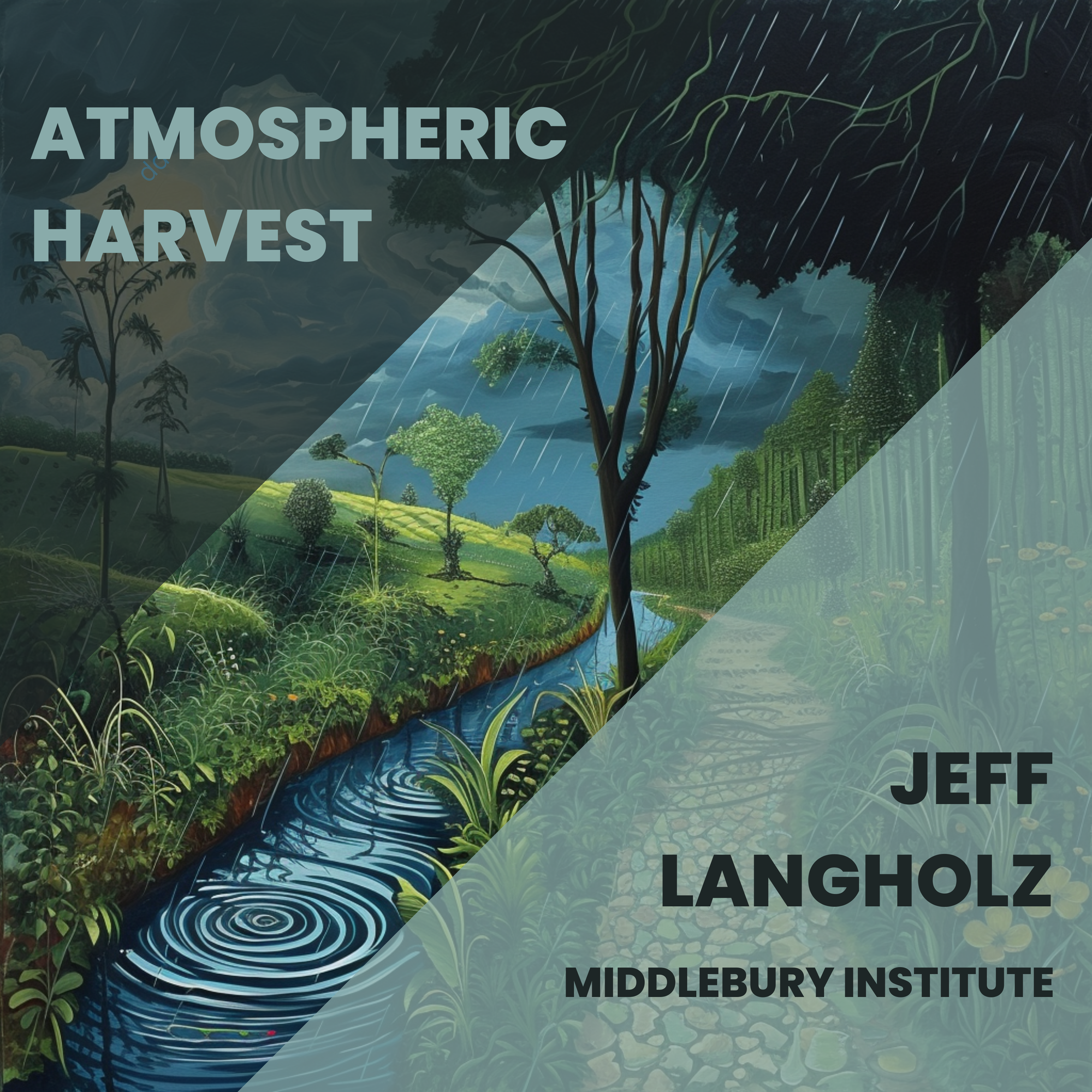Solving the Water Crisis: Harvesting Infinite Water from the Sky

"Every great movement must experience three stages; ridicule, discussion, and adoption. And right now, when it comes to harvesting invisible water from the sky, we are at the early stage"
What if we could harvest an unlimited supply of water from the sky itself, then purify and recycle it in a constant loop? On this mind-expanding episode of Liquid Assets, Professor Jeffrey Langholz shares his radical vision for solving the global water crisis through the ultimate decentralized system.
Langholz is a professor at the Middlebury Institute who has spent over 20 years studying sustainable management of precious natural resources like water, forests and fisheries worldwide. He paints a compelling picture of why our current centralized, pipeline-based model of water distribution is unsustainable across economic, environmental and social dimensions. But a local, circular model of pulling water from the air and continuously recycling it could mitigate crises like scarcity, pollution and climate impacts.
His bold four-part framework revolves around the Passive collection from rain, fog and dew, Active harvesting using atmospheric generators, Purifying graywater from sinks and laundry and Recycling blackwater from toilets. Langholz details cutting-edge examples of these technologies being piloted globally, from solar-powered generators to office towers recycling their wastewater.
He draws insightful parallels to how other utilities like electricity, telecoms and entertainment inevitably transitioned from centralized to decentralized, consumer-level systems. Is water simply the next utility ripe for that disruptive shift? While the idea may sound far-fetched today, so did concepts like streaming movies or ordering an Uber from your phone not long ago.
Whether you find Langholz's ideas ridiculous or inspiring, this fascinating discussion will make you rethink humanity's ancient relationship with our most precious resource. Join us for a glimpse of a future where households and businesses could be self-sustaining water microgrids - a bold new paradigm as revolutionary as any other game-changing technology.
What you'll learn in this episode:
- The Unsustainability of Our Current Water Systems: Why centralized water distribution is struggling on environmental, economic and social fronts.
- A Decentralized Model for Harvesting Skywater: The four pillars of Jeffrey's vision for hyper-local water collection, purification and recycling.
- Cutting-Edge Water Technologies: Real-world examples of fog harvesters, atmospheric generators, graywater recyclers and more.
- Parallels to Electricity, Telecoms and Movies Going Distributed: How water is following other disrupted utilities towards decentralization.
Listen On:
Watch the interview:

Meet Jeff

Professor Jeffrey Langholz is a distinguished scholar from the Monterey Institute who is passionate about the sustainable future of water. With his wealth of knowledge and experience in environmental policy, Langholz has dedicated his career to exploring innovative water solutions.
His work involves the study and promotion of decentralized onsite water systems and the untapped potential of harvesting skywater. Langholz is not just a theorist; he's an active participant in the advancement of water technology, always on the lookout for the next big idea. He believes that the future of water is closer and better than we think and is dedicated to leading us closer to that reality. With his engaging and forward-thinking approach, he's a pivotal voice in the conversation about our water future.
The Book, Movie, or Show
In our quest to discover the literary influences shaping our guests' visions, one title stands out in Jeff's repertoire.

"The World is Flat" by Thomas Friedman
In explaining his vision for a decentralized future of water harvesting and recycling, Professor Langholz draws a parallel to the seminal book "The World is Flat" by Thomas Friedman. Friedman's influential work charted the rise of globalization and how the digital revolution was flattening hierarchies and empowering individuals over centralized institutions.
Langholz sees water undergoing a similar transition towards "flatter, distributed, grassroots" models – just as we've witnessed with movies moving to streaming platforms, transportation shifting to ridesharing apps, and more. He argues that just as Friedman foresaw accelerating decentralization across industries, water is poised to move from centralized utility grids to hyperlocal collection and recycling at each property.
Contains affiliate Amazon links.

 Ravi Kurani
Ravi Kurani